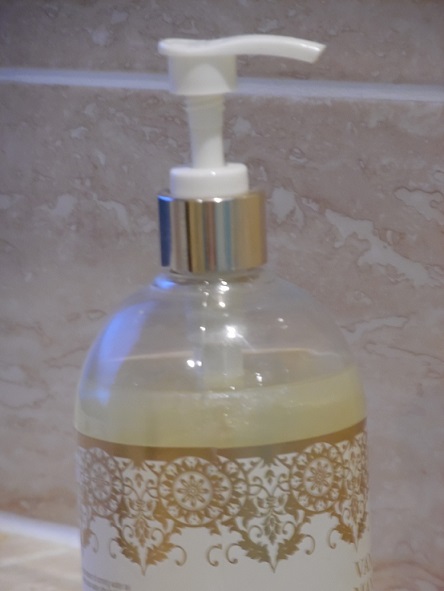 One of the biggest developing health stories in the 21st century is the sheer amount of common chemicals which are turning out to have deadly health consequences, and are facing calls to be banned.
One of the biggest developing health stories in the 21st century is the sheer amount of common chemicals which are turning out to have deadly health consequences, and are facing calls to be banned.
Firstly, you have the phthalates which make everyday plastics flexible, which dramatically reduce sperm quality and fertility. Then there’s atrazine, the most commonly applied US herbicide, so estrogenic that it turns male frogs into female frogs when added to rivers. Next, there’s the neurotoxic heavy metals such as mercury in tuna and arsenic in fruit juice.
Finally, we have the signature chemical of personal care products – parabens. Parabens are a wide class of chemicals, including propyl paraben and butyl paraben. They are united by one common application – their preservative properties, which prevent bacteria, mould and fungi from multiplying.
Parabens exist in nature; for example, methyl paraben occurs naturally in blueberries as an anti-fungal agent. The “parabens” most natural health websites rant about, however, are a synthetic version. Butyl paraben is produced industrially using sulfuric acid as a catalyst.
Parabens are very cheap to manufacture and are added to some foods (with the e-number E216 or E214), but most commonly make-up, shower gel, shampoo, deodorants and other cosmetics…
…and this ubiquity is partly why they inspire such fear. Making matters worse, a few preliminary studies have appeared showing similar estrogenic properties to the notorious chemicals mentioned above.
Are acne dangers possible? While the evidence is only trickling in right now, the prospects are grim, or alternatively, good if you view it as yet another opportunity for improving your skin.
Parabens match the deadliness of other common chemicals
The first big paraben problem is a widespread one among environmental chemicals – attacking both the male and female reproductive system.
A Japanese study from 2002 tested propyl paraben, found in the supermarket shampoos you wash your hair with in the shower. Firstly, daily sperm production and efficiency fell in all groups.
Secondly, bloodstream testosterone (a vital hormone for sex drive and mental energy) fell in a dose dependent manner and by “significant” amounts in the high paraben group.
Most importantly, it wasn’t an astronomically high amount that not even one thousand years of shampoo could achieve; it was equal to the upper daily limit of both Japan and the European Union. The EU is already far stricter with cosmetics chemicals than authorities from the US.
Now for the next hidden consequence: parabens’ strong estrogenic properties. The most infamous study ever was from 2004; it revealed that 99% of all female breast tumours (out of 160 sampled) contained synthetic parabens. 60% or more contained all five types: propyl, methyl, butyl, ethyl, and isobutyl paraben.
Read Annihilate Your Acne – get the ultimate diet for clear and glowing skin!
As some scientists pointed out, there was no healthy breast tissue for comparison, causing the cosmetics industry to hail parabens as gloriously safe for a time.
However, tests on rats soon revealed that parabens stimulated estrogen receptors almost equally to natural estrogen, and the real problem? Female breast tissue contained nearly 1 million times more parabens than natural estrogen. Estrogen is a necessary hormone for health, but uncontrolled levels encourage cell mutation and correlate closely with breast cancer.
Worse, parabens can cause cancer through other methods – in a 2011 study they prevented human breast cells from undergoing apoptosis, the timed cell death that prevents rapid overgrowth and proliferation. Excessive cell cycling was also observed. Parabens also cause detectable DNA damage in mammals, according to a 2010 study which examined the common propyl paraben (shampoo, bath products, lotions).
Even the fish kingdom is under threat; according to the Environmental Protection Agency, the continual washing away of parabens into sewers and then natural river systems is damaging the organs of fish, frogs, and other aquatic life. Some claim that parabens are safe in cosmetics because you don’t eat them, but the opposite is true. Parabens are absorbed through the skin intact (study), providing a direct pathway to the bloodstream and increasing levels extra sharply. The kidneys and liver are bypassed as well.
Parabens used as preservatives in processed foods (sauces, beer, processed fish) are actually safer, as they’re deactivated by enzymes in saliva and then the stomach. The “skin absorption is worst” rule applies widely; for example, the carcinogenic nitrosodiethanolamine (NDELA) found in common shampoos has a 100 times higher absorption rate when applied to the skin versus eaten.
There are tons of paraben apologists out there who might mumble something about an outstanding safety record, but the studies above speak for themselves. We are witnessing history repeat itself. Back in the 1960s, the FDA deemed BPA to be generally recognised as safe, but last year the French government banned its usage in plastic and in 2013, the FDA banned BPA in baby’s bottles.
Why vitamin C is the acne nutrient you cannot ignore
The cycle is beginning anew – Denmark has now banned synthetic parabens in all products targeted towards children under 3.
Parabens have significantly less research than BPA or phthalates, but their fearsome consequences seem to be identical, particularly the human reproductive system chaos.
Can parabens end up causing acne in any indirect way?
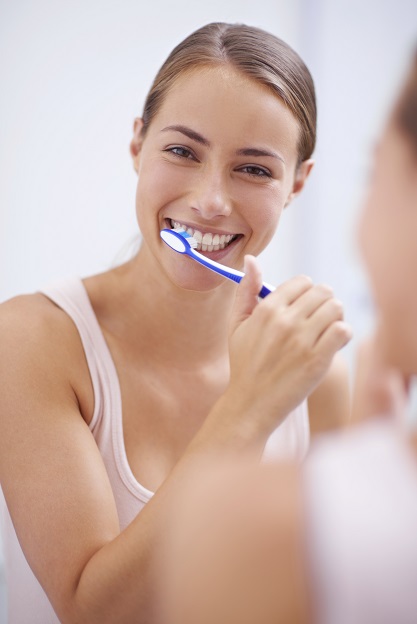 My tentative answer is yes. Firstly, we have a run of the mill power for environmental chemicals – increasing oxidative stress.
My tentative answer is yes. Firstly, we have a run of the mill power for environmental chemicals – increasing oxidative stress.
In this 2011 study, feeding butyl paraben to several mice dramatically increased the lipid peroxides forming in their bodies, while draining vital antioxidants such as glutathione (very important), ascorbic acid and catalase. These effects were dose dependent. What’s more, a parallel mice group taking no parabens experienced no decline in antioxidants.
Why does this matter? High oxidative stress, an excess of free radicals and depletion in antioxidants, is the top bodily cause of acne alongside chronic inflammation. Almost every article on this website mentions it.
In particular, the glutathione which parabens reduce is absolutely vital. It is widely hailed as the body’s “master antioxidant”, and one study found 20% lower levels in acne patients’ bloodstreams.
Given the thousands, near endless sources of 1) healthy antioxidants, and 2) damaging chemicals that reduce bodily antioxidants, I recommend being constantly on the alert, gaining an advantage in whatever area you can. A virtually identical experiment found virtually identical results; mice fed butyl paraben experienced more lipid peroxides in their blood and a dramatic reduction in antioxidants like glutathione and catalase.
Parabens apparently have uniquely deadly attributes as well. One study analysed parabens in urine in pregnant women and noticed a close correlation with cortisol levels, the main stress hormone.
If you’re like most people with acne, you’ll have experienced the reality that stress really does trigger pimples (full article here). Principally, mental anxiety triggers a stress hormone rise, but parabens can apparently increase cortisol regardless of your mood; it’s purely biologically driven.
Important article – the top 6 vitamins and minerals for clearing acne
Finally we have this 2012 study in which 860 school children had their blood levels of numerous environmental chemicals (EDCs) analysed. There was no broad link with allergies, except for two: “the antimicrobial EDCs triclosan and parabens were significantly associated with allergic sensitization”.
Both food allergies and airborne allergies were increased with heightened paraben exposure. Note that triclosan is a deadly antibacterial chemical once used in toothpaste.
Why is this important? Allergies, food allergies, and digestive problems in general, are a notorious cause of acne. You may have witnessed that in action if, for example, you eat an almond and burst out with pimples for no obvious reason. How parabens work is a mystery, but given that they’re a synthetic chemical, they are probably identified as foreign to the digestive system and treated to an all-out inflammatory assault.
This uncertainty illustrates clearly how parabens are barely researched, and thus have unexpected side effects. In that they join their forefathers BPA and phthalates.
The verdict on parabens
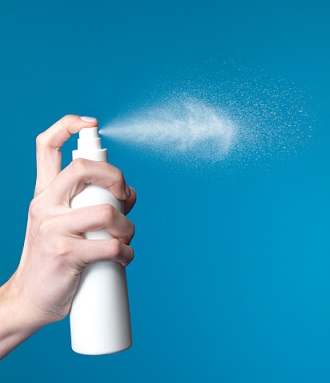 Parabens are not conclusively proven to cause acne, but there’s easily sufficient evidence to ruthlessly eliminate them from your life.
Parabens are not conclusively proven to cause acne, but there’s easily sufficient evidence to ruthlessly eliminate them from your life.
For one thing, the products containing parabens are packed with other deadly additives anyway. Take antiperspirants. The main ingredient for clogging sweat glands is aluminium, a heavy metal which causes acne by depleting glutathione, AND is strongly linked to Alzheimer’s. Toothpaste features both methyl paraben and the enamel-restoring chemical sodium fluoride, which reduces IQ levels in infants as well as cranking up inflammation levels.
It’s a similar story with makeup (phthalates), processed food (sugar, wheat, vegetable oils), and mouthwash (fluoride again).
Secondly, many gurus insist that parabens are nothing to worry about, because the quantities in individual shampoo (or handwash) bottles are far below the acceptable daily limit. But they don’t comprehend that we’re exposed to multiple sources daily. The average woman applies makeup and perfume in the morning, washes her hands with cleansing gel, uses shampoos and body wash at night, and sprays on antiperspirants. Most of those are sources of parabens!
Then there’s the countless other villains. It’s estimated that women are exposed to 168 different chemicals through cosmetics daily, and absorb an average of 5 pounds of chemicals per year.
Our detoxification systems are currently crippled as well. Our levels of glutathione, a vital detoxifying agent, are being rapidly depleted thanks to both a diet lacking in its building block nutrients and over-exposure to toxins. Hence, parabens are more likely to build up in tissues rather than be metabolised efficiently.
Many environmental chemicals have a synergistic effect as well; mild chemicals are known to mutate into cancer-promoting carcinogens when combined. Could a similar phenomenon occur with parabens? There’s no evidence yet, but it’s definitely possible…
Parabens and other chemicals – a hidden menace in health
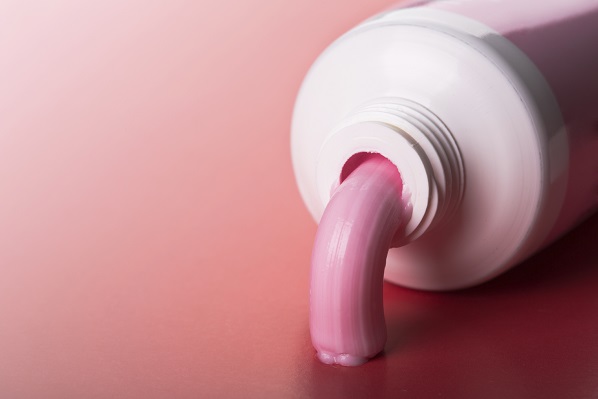 …and that illustrates another point, which is that BPA, parabens, triclosan and the thousands of other chemicals are largely unknown entities.
…and that illustrates another point, which is that BPA, parabens, triclosan and the thousands of other chemicals are largely unknown entities.
They were only invented during the last 150 years by humans. During that period we have witnessed an exponential increase in cancer and decline in human fertility rates (a 50% drop in average sperm quality over 50 years up to 2003, for instance).
Paraben, like its frog-mutating, IQ-reducing grandfathers BPA and fluoride before it, enjoys an official status of “generally recognised as safe”. But who assigns the rating?
The answer is complicated. Firstly, the FDA does not regulate chemical additives anywhere nearly as strictly as it does human and animal drugs. The FDA supposedly concluded that parabens were safe based on a single study performed on rats back in 1956 which used an oral dose, and as we discussed earlier, oral doses are far safer.
Important article – the top 7 natural topical treatments for acne
More recently, the reassuring judgements of safety have come from the Cosmetic Ingredient Review (CIR), which concluded that parabens were perfectly safe both in 1984 and again in 2005 after the 2004 breast cancer scare took off. But what’s the real story here? The truth is that the CIR has a history of being highly lax about the safety of ingredients.
For example, by 2013 the European Union had banned nearly 1,400 chemicals from personal care products due to experiments showing they were carcinogenic, mutagenic, or toxic to reproduction. In the United States, meanwhile, the CIR has found just eleven ingredients to be unsafe. Some environmental groups claim that the CIR is run by the cosmetics industry, for the cosmetics industry, and is trapped in a classic case of the fox guarding the hen house.
Similarly, the FDA barely tests half of chemicals used in commercial products. For example, the Environmental Working Group once estimated that only 28 common toiletries and cosmetics out of 7,500 had ingredients which were all fully tested for safety.
Meanwhile, health conditions potentially linked to these chemicals are growing ever more common. One of the most suspicious pieces of evidence is the human race’s declining fertility. Over the last 100 years, the testosterone levels of the average male have fallen by over 50% and some scientists estimate them to be dropping by 1% every year now.
No mainstream scientists are offering an explanation for this. At the same time, a vast amount of chemicals, whether it’s parabens, phthalates, triclosan, fluoride, PFCs, or BPA, are endocrine disruptors; they have a variety of detrimental effects on hormones.
In my view, this abundance of environmental chemicals is a massively overlooked phenomenon in many aspects of health, including acne.
For that reason, I am taking no chances when it comes to a wide variety of chemicals in personal care products, and I advise you to do the same.
That includes parabens, and another reason to minimise synthetic parabens in your life is that doing so is very easy. Too many of the insidious chemicals are found in air pollution or are lurking in tap water, or even plastics in cars, computers and laptops, and are thus difficult to avoid…
…but parabens, by contrast, are found in cosmetic products which are purely optional, so it’s smart to seize the chance to eliminate their dangers.
If you live in a polluted city you can’t just flee overnight, but you can switch to a shampoo with more natural ingredients. You can’t eliminate all environmental chemicals but the more you do the stronger your skin will become.
How to banish parabens from your life
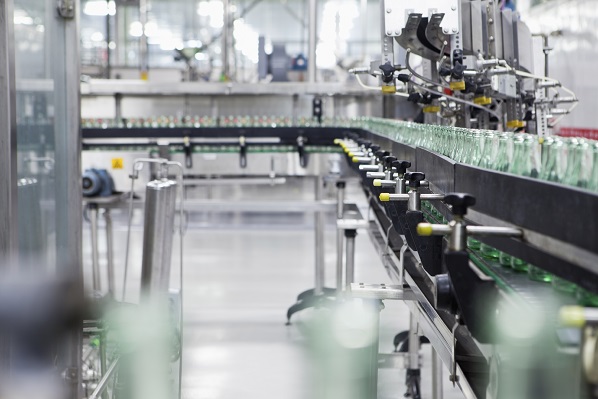 Removing every last molecule of synthetic parabens from your life is impossible, unless you isolate yourself from society and live in a wooden hut in the mountains forever. For example, simply shaking the hand of a woman who had applied make-up that morning will transfer a tiny of paraben residue amount to your hand.
Removing every last molecule of synthetic parabens from your life is impossible, unless you isolate yourself from society and live in a wooden hut in the mountains forever. For example, simply shaking the hand of a woman who had applied make-up that morning will transfer a tiny of paraben residue amount to your hand.
But you can easily wipe out 99% plus of all paraben exposure, sending your intake so low that the effect on acne, antioxidant supplies and fertility is virtually zero. Here is the basic guide to replacing and eliminating the main everyday products containing parabens:
Processed foods – the strategy here couldn’t be simpler, eliminate processed foods entirely.
We’ve already covered in this article about how eating processed food is a gamble every time. They’re full of added sugar, even in foods where you’d least expect it like steak sauces and breaded fish. There’s very commonly wheat-derived ingredients, vegetable oils, and artificial sweeteners added.
It’s impossible to tell what’s in processed foods sometimes; did you know, for example, that E621 is actually MSG, which is strongly linked to damaged digestion? Unless you have a library of e-numbers in your brain, relying on processed foods is a minefield.
Raw honey – a natural secret for wiping out acne bacteria
Hence, the basic dietary strategy for acne is to stick to whole foods, none of which will contain synthetic parabens anyway. The foods most notorious for parabens include beer, sauces, and processed fish.
You can still drink a can of beer occasionally and get drunk every week, particularly if the rest of your diet is bursting with nutrition. As we discussed, skin absorption of parabens is the real threat. Simply stay away from processed foods when they’re neither necessary nor pleasurable to indulge in.
Shower gel, shampoo, hand wash, washing up liquid, all-purpose cleaner, deodorant – the glorious alternative to each of those paraben-filled products is Dr Bronner’s liquid castile soap. Dr Bronner’s is an all-natural soap containing natural oils like tea tree oil, coconut oil, hemp oil, jojoba oil and more. It’s free from parabens, phthalates, and any other unnatural chemicals.
The first thing you’ll notice on the bottle is the massive letters boasting of “18 uses in 1”, and that’s why I recommend it. Dr Bronner’s is as great for any shampoo for cleaning hair and keeping it soft, it cleans dishes superbly, and it’s excellent as a body and hand wash.
You don’t have to worry about absorbing unhealthy chemicals through the skin simply because there aren’t any. I strongly recommend Dr Bronner’s to replace a variety of cosmetics.
The large 32oz bottle is greatest value for money. The best flavouring is the orange version, and the almond and peppermint are excellent as well. Dr Bronner’s also functions well as a basic face wash, although you should only use small, diluted amounts to avoid drying the skin out and disrupting its barrier function.
Toothpaste – commercial toothpastes commonly contain methyl paraben. The problems specifically associated with methyl paraben include allergies and damage to DNA. The sodium fluoride in common toothpastes and mouthwash mean that any acne patient should avoid it (full article here) and my recommended alternative is a mixture of baking soda and coconut oil.
Baking soda is both 1) alkaline to wipe out any excess acidity in the mouth and 2) antibacterial to kill off the enamel-destroying bacteria which feed off those acids. Coconut oil reduces the abrasiveness of baking soda, increases the easiness of usage, and has antibacterial powers of its own due to its high lauric acid content.
Additionally, a massive favourite in the natural remedy community is “oil pulling”, a type of natural mouthwash where you swish virgin coconut oil back and forth in your mouth for 15 minutes. Oil pulling is often dismissed as alt-med mumbo-jumbo because it is sourced from the ancient Indian Ayurvedic medicine school (which claims that heavy metals are good for you) but coconut oil has proven antibacterial effects.
Try it and you’ll be surprised at how fresh your mouth feels afterwards. Also organise for proper gum protecting nutrition such as calcium, vitamin C, and vitamin K2, and avoid sugar and grains.
Make-up – women worldwide are not going to stop using make-up just because of a random chemical, so the smartest option is to track down a chemical free (or mostly chemical free) version. Luckily, the market is booming thanks to all the interest in chemical-free living.
For homemade options designed to be natural and free from chemicals check out this article. For commercial products, brands that are paraben/chemical free and get good reviews from women in primal/all-natural circles are Aubrey Organics and Jane Irdale.
Acne cleansers – the options are endless. Read this article for the top 5 natural topical treatments.
Conclusion
Ruthlessly eliminating paraben-filled products from your life will not clear your skin like magic but it’s yet another minor positive change to make, to step closer to the skin you’ve always dreamed of. Going all natural with the personal care items and cosmetics you use will ensure that your antioxidant supplies are slightly higher, your stress levels slightly lower, and your digestive system slightly calmer.
What’s also possible is that your skin is abnormally sensitive to parabens for whatever reason. Maybe you’re a woman who cannot understand why you break out with a vengeance when you simply apply make-up, and then resort to applying even more make-up to hide it, but then break-out even further. In that case, there’s a good chance that by switching to natural make-up you’ll enjoy a noticeable clearing of your acne rather than just a miniscule one.
If this article is the first news you’ve read about dangerous chemicals in commercial products full stop, get started now. The first things to ditch are chemical laden moisturisers and face cleansers, which are the worst of the worst for inflaming existing acne.
For most people, parabens are one among thousands of minor contributing factors towards acne, but one you should eliminate nevertheless.
NEXT: learn the root causes of acne, clear your skin permanently
Thanks for reading!
Hi Richard, I’ve slowly been replacing my products with natural ones. Can you tell me which soap/ wash is OK for the face?
If it’s purely a soap/wash you want, then I’d recommend the Dr Bronner’s liquid castile soap mentioned in this article. Use small quantities as it can be drying and alkaline, otherwise it’s great for the skin. It can also be used as a shampoo and I find that it works excellently. The ingredients are all natural, most importantly.
Ditching the shampoo is great news for the environment, too, especially if you have long hair. Thanks for everything, Richard!
Hi Richard, do you think we should avoid tea bags because they might leach microplastics or other associated chemicals into the water?